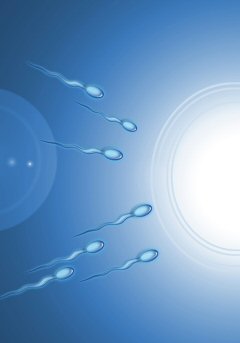 Testicular cancer survivors can face an increased risk of long-term illness, not because of the cancer, but the treatments they receive, says a study in the British Journal of Urology International.
Testicular cancer survivors can face an increased risk of long-term illness, not because of the cancer, but the treatments they receive, says a study in the British Journal of Urology International. In the study, researchers from the Norwegian Radium Hospital found that the number of problems faced by survivors is higher than generally thought because doctors only report those problems that are life-threatening or require medical intervention.
Worryingly, up to a quarter of survivors develop long-term neurological, hearing and circulation problems and are twice as likely to develop a secondary cancer. "Patients can suffer considerable mental distress after having one testicle removed due to cancer, but this gradually decreases with treatment," added study author Professor Sophie D Fossa.
She also noted that gastrointestinal side-effects are common during both chemotherapy and radiotherapy and chemotherapy carries added risks like infections and blood clots. Long-term problems include secondary cancers, heart problems, and conditions related to lower hormone levels.
Other key findings include:
- About 80 percent of men who have one testicle removed continue to produce sperm, although at reduced levels.
- Although men are advised to freeze their semen before treatment, less than 10 percent use their frozen samples later on.
- Pulmonary complications can arise in men who receive the drug bleomycin before larger surgical procedures, particularly if they are aged 40 or over.
- Cisplatin-based chemotherapy can damage the sensory nerves in up to 30 percent of patients and 20 percent of survivors complain of impaired hearing and tinnitus.
- Around 20 percent of survivors suffer irreversible hypogonadism (where the testes produces little or no testosterone) and reduced fertility.
- Removal of lymph nodes in the abdomen can lead to dry ejaculation in some patients.
- About 17 percent of survivors suffer chronic fatigue, almost twice the normal population.
"We believe that the best way to reduce the short and long-term health of survivors is to reduce the risk, by smoking cessation, physical activity and weight reduction, and to provide adequate follow-up for patients who could develop life-threatening toxicity. It is important to focus on reducing risks through healthy lifestyle choices. We would also like to see screening guidelines developed to ensure that the long-term side-effects are diagnosed and treated as early as possible," Professor Fossa said in conclusion.
Related:
Testicular Cancer
Testicular Cancer Self-Examinations Rarely Done
Testicular Cancer Treatment Risk
Certain Foods Could Cause Testicular Cancer
Source: British Journal of Urology International

